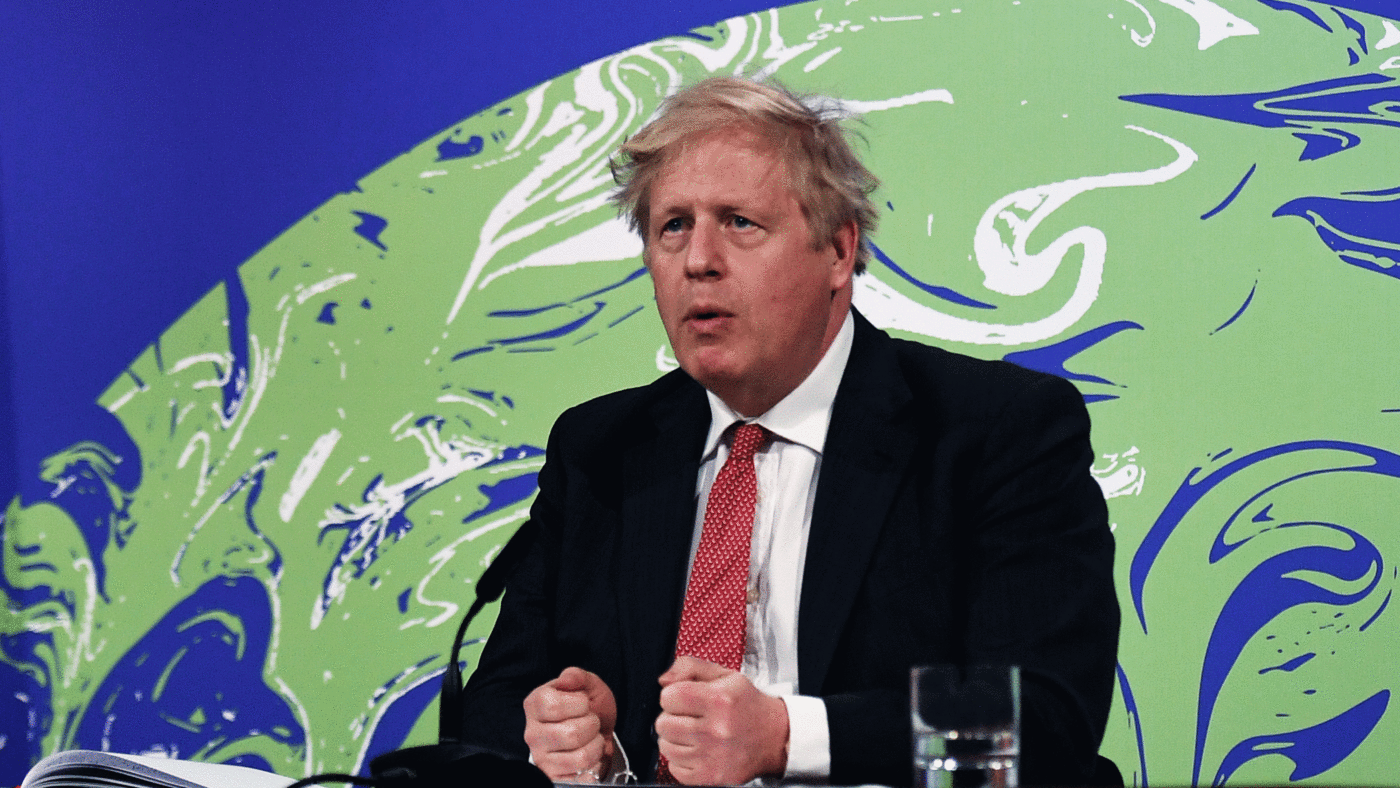As the last Queen’s Speech before the UK hosts COP26, the Government was understandably determined to use it as an opportunity to burnish its green credentials. ‘Building Back Greener’ was one of five distinct ‘Building Back’ pillars, and within it were three sub-pillars – the Government’s strategy for tackling climate change, the return of the Environment Bill, and a plan to promote animal welfare.
The words on climate change were really nothing more than a restatement of what we already know. The Government has laid legislation to set the Sixth Carbon Budget (aiming for a 78% reduction in greenhouse gas emissions by 2035 relative to 1990 levels), it has announced a Ten Point Plan which mobilises £12bn of public investment into various green sectors, and it has published an Energy White Paper which seeks to further decarbonise power, while helping homes and businesses to transition to low-carbon heating systems. Of course, the Government will also be leading the COP26 climate negotiations in Glasgow in November, where it will strive first and foremost to catalyse further ambition on stopping global warming.
Environmental campaigners will welcome the return of the Environment Bill, which – much to their chagrin – was delayed during the last Parliamentary session. The Bill will, among other things, set legally-binding targets for various environmental indicators (such as air pollutants), aim to better protect nature by mandating the principle of ‘biodiversity net gain’ in the planning system, and establish the Office for Environmental Protection – an independent body tasked with holding public authorities to account on environmental law.
There will be no shortage of good press coverage for the measures set out to bolster animal welfare – with three separate bills being introduced to raise standards on welfare for animals at home and overseas. The Animal Welfare (Sentience) Bill will legally enshrine the notion that vertebrate animals are sentient creatures – with the capacity to feel joy and experience suffering – and should provide a stronger foundation for protecting animals from cruelty. The Animals Abroad Bill, meanwhile, will ban the import of hunting trophies from endangered animals, and end advertising in Britain of low-welfare animal experiences abroad (think here of taking photos next to tigers drugged up to their eyeballs, presumably). Lastly, the Kept Animals Bill should strengthen protections for pets, animals used for sports, and farm animals, and will include provisions to end the export of live animals for fattening or slaughter.
While the above details the most obviously ‘green facing’ elements of the Queen’s Speech, many other nods towards sustainability can be found dotted throughout.
Levelling up is of course what the Government wants its primary focus to be. Owing to the pandemic, it has struggled to get to grips with delivering tangible results here. But as the vaccine rollout causes the coronavirus to recede, the Government will be able to set about restoring growth, with a focus on those parts of the country which have lagged behind economically for decades.
Central to a successful levelling up will be ensuring that the jobs of the future are being created right across the United Kingdom, and that people have the requisite skills to do them. To help in that endeavour, a new Lifetime Skills Guarantee was announced – which will provide every adult access to a loan for education or training to use at any point in their lives. If this can help spur the transition for workers to move from high-carbon to low-carbon industries, the challenge of meeting Net Zero should become that little bit easier.
The Planning Bill ought to make it easier to build the extra homes the country sorely needs, too. The Government claims the bill will create a ‘simpler, faster, more modern planning system’, which has drawn predictable ire from certain quarters – who see it as a threat to bucolic vistas and unspoilt habitats. Yet, if it succeeds in allowing homes to be built at greater densities than is the case currently (particularly in urban areas), that could be a net win for the environment – as denser communities are greener communities, for a range of different reasons.
To help people get around, the Speech name checked how the Government will push ahead with its National Bus Strategy. Not only does this attempt to clean up buses themselves, but it also makes an explicit objective of increasing patronage – by making travelling by bus a more attractive option. If this reduces car dependency, air quality should only go up, and emissions should only go down.
Lastly, an honourable mention must be given to the continuing emphasis on research and development. Already, the Government has increased public spending on R&D, as well as taking steps to incentivise more private investment too – all with an objective of raising total R&D spending to 2.4% of GDP by 2027. Measures detailed in the Speech build on this, such as a review into how to reduce bureaucracy researchers face, and the unveiling of the Advanced Research and Invention Agency (ARIA). Innovation will be critical if we are to meet Net Zero – as without it, the only possible way of hitting that goal is to pursue a comprehensive course of carbon-austerity and self-imposed restraint. And the chances of that getting political traction are nil.
A little over two months ago, at the last real set piece occasion in Parliament, the Budget left many in the green fold feeling dispirited. This Queen’s Speech might not tick every box, but if it does one thing, it cements the fact that environmentalism runs through Boris Johnson’s programme for government – and with the end of the pandemic in sight he can get on with tackling the other great global threat.
Click here to subscribe to our daily briefing – the best pieces from CapX and across the web.
CapX depends on the generosity of its readers. If you value what we do, please consider making a donation.


